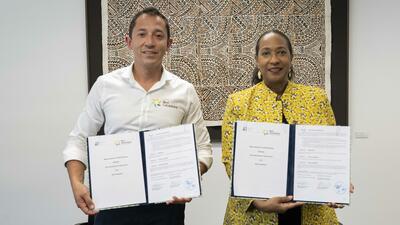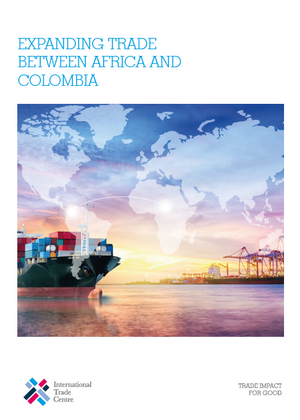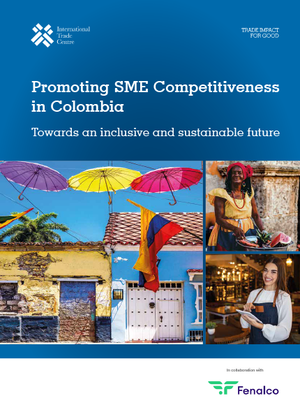
Business innovation needed for Colombian SMEs to move beyond crises
National survey finds that skilled workers and innovations can boost small firms’ resilience
Small Colombian firms, integral to Colombia’s economy, face major challenges in the wake of the COVID-19 pandemic and climate change. These challenges can be addressed through business innovation, according to a business survey carried out across Colombia by the International Trade Centre.
Promoting SME Competitiveness in Colombia: Towards an inclusive and sustainable future analyses the ability of Colombian SMEs to compete and to be resilient. Developed with the National Trade Federation of Colombia, the report is based on a survey of 634 firms across the country between August 2021 and June 2022.
Innovation helps Colombian firms to prepare themselves for future crises: 66% of more innovative firms had taken steps to prepare for future crises, compared with just 39% of those with low innovation rates.
Business innovation can help tackle climate change – a crisis that worries 76% of survey participants. The survey found that 81% of companies with high innovation rates invested to reduce their environmental impact, compared with 61% of firms with low rates. The survey also found that skilled workers are bridging gaps in the challenging pandemic and post-pandemic times. Only 12% of businesses reporting good skills matches were very concerned about their COVID-19 recovery, compared with 56% of those with poor skills matches.
How to boost innovation in Colombia
The report recommends business innovation in processes and products, by using technology, skilling up workers and tapping into business support organizations.
Innovation can lower emissions or introduce new production processes or inputs that generate fewer emissions. Eco-innovations reinforce firm competitiveness and help businesses reduce their environmental impact.
Not surprisingly, small businesses are less likely than big companies to invest in innovation and climate change mitigation. SMEs tend to have fewer resources to invest, and they lack the technical knowledge required to reduce the environmental impact of their operations.
Collaboration between academic institutions and businesses can encourage commercially-oriented R&D in Colombia. Better-quality education and training can further equip Colombians with innovation skills demanded by the labour market, the report says.
Strengthening links with business support organizations, especially among women-led firms, can also support the sustainable growth of companies. These organizations can provide the information, coordination, technical assistance and training needed to help firms overcome the barriers to investment in both innovation and climate action.










